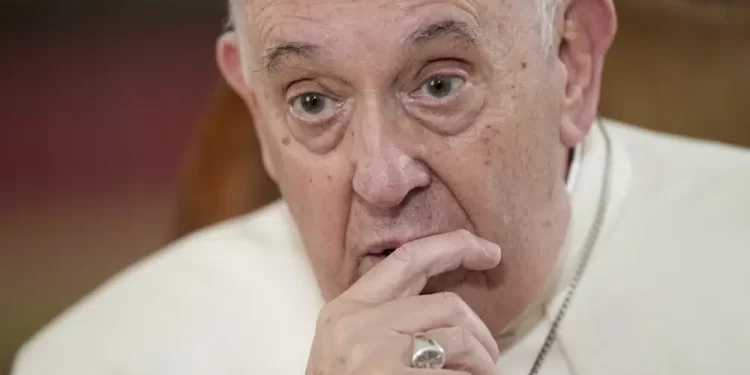Pope Francis formally approved letting Catholic priests bless same-sex couples, the Vatican announced Monday, a radical shift in policy that aimed at making the church more inclusive while maintaining its strict ban on gay marriage.
But while the Vatican statement was heralded by some as a step toward breaking down discrimination in the Catholic Church, some LGBTQ+ advocates warned it underscored the church’s idea that gay couples remain inferior to heterosexual partnerships.
The document from the Vatican’s doctrine office elaborates on a letter Francis sent to two conservative cardinals that was published in October. In that preliminary response, Francis suggested such blessings could be offered under some circumstances if the blessings weren’t confused with the ritual of marriage.
The new document repeats that condition and elaborates on it, reaffirming that marriage is a lifelong union between a man and a woman. And it stresses that blessings in question must not be tied to any specific Catholic celebration or religious service and should not be conferred at the same time as a civil union ceremony. Moreover, the blessings cannot use set rituals or even involve the clothing and gestures that belong in a wedding.
The Catholic Church and LGBTQ+ rights
This is not the first time Pope Francis has worked to open the Church to the LGBTQ+ community. Some say it’s too much, and others say that it’s not enough.
- Last month, the Vatican said it is permissible under certain circumstances for trans people to be baptized as Catholics and serve as godparents.
- “Being homosexual isn’t a crime” — Earlier this year, the pope said these words in an interview with The AP, criticizing laws that criminalize homosexuality.
- Months after becoming pope, Francis said ” who am I to judge” when it comes to the sexual orientation of priests.
But it says requests for such blessings for same-sex couples should not be denied. It offers an extensive and broad definition of the term “blessing” in Scripture to insist that people seeking a transcendent relationship with God and looking for his love and mercy shouldn’t be held up to an impossible moral standard to receive it.
“For, those seeking a blessing should not be required to have prior moral perfection,” it said. “There is no intention to legitimize anything, but rather to open one’s life to God, to ask for his help to live better, and also to invoke the Holy Spirit so that the values of the Gospel may be lived with greater faithfulness,” it added.





